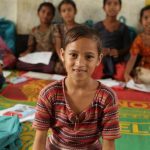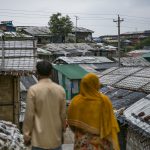New Publication In April 2023, IFPRI researchers Akhter Ahmed, M. Mehrab Bakhtiar, Daniel O. Gilligan, John Hoddinott, and Shalini Roy published the open access article, "Private transfers, public transfers, and food insecurity during the time of COVID-19: Evidence from Bangladesh" in Applied Economic Perspectives and Policy. Abstract In the aftermath of the COVID-19 pandemic, interest […]
Journal Article: Food Transfers & Child Nutrition in Rohingya Camps
Rohingya refugees are highly vulnerable to many challenges. IFPRI and Cornell researchers joined hands to examine the associations between receipt of an electronic food voucher (e-voucher) compared with food rations on the nutritional status of Rohingya children living in refugee camps in Bangladesh. The study found that, in a humanitarian assistance setting (i.e. Rohingya refugee […]
Reaching the Most Needy Amid COVID-19: Interview
Government of Bangladesh's Response to Feed the Needy The Bangladesh government has taken a special scheme to reach food to 50 lakh people through a food friendly program in the cities through Open Market Sale (OMS) of rice. A special OMS scheme has started last week in addition to the previous one to ease the […]
How can safety nets reduce violence against women in Bangladesh?
Direct cash transfers coupled with behaviour change communication (BCC) can reduce violence against women inflicted by their partners by more than a quarter, according to a study. The study said the reduction in violence was found six to 10 months after the intervention ended, providing the first evidence that such benefits can be sustained by […]
A Catch-22 in Safety Net Targeting in Bangladesh (BLOG)
A Bureaucratic Catch-22: Study in Bangladesh Shows How Safety Nets Can Overlook the Poorest Around the world, governments and development partners make hard choices on how to invest their limited resources to help the needy. But in a country like Bangladesh, where almost one fourth of the population of 165 million lives below the poverty line, […]




